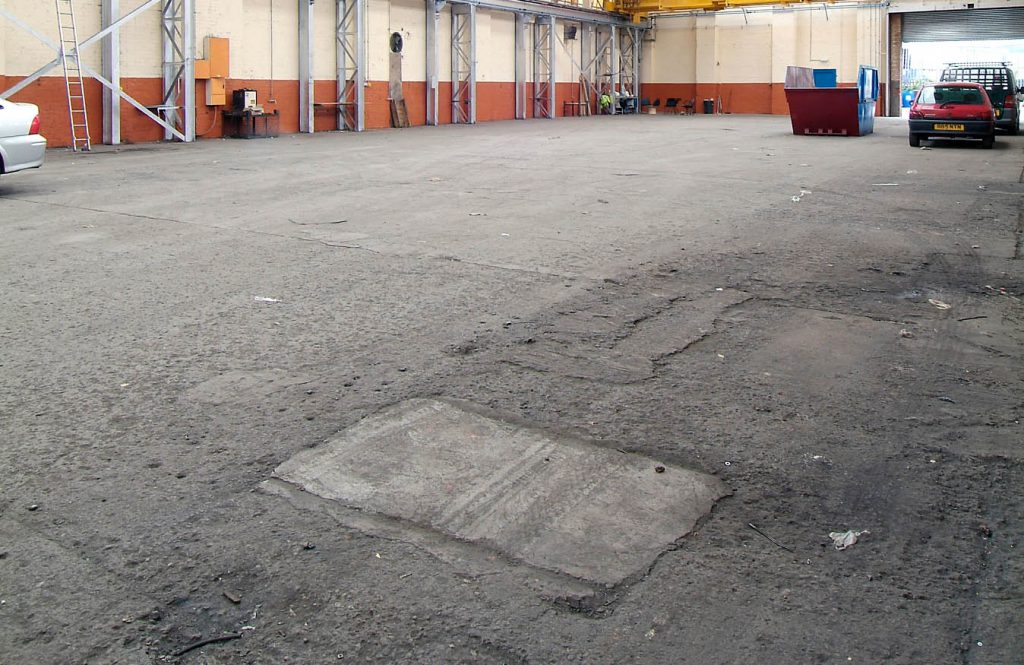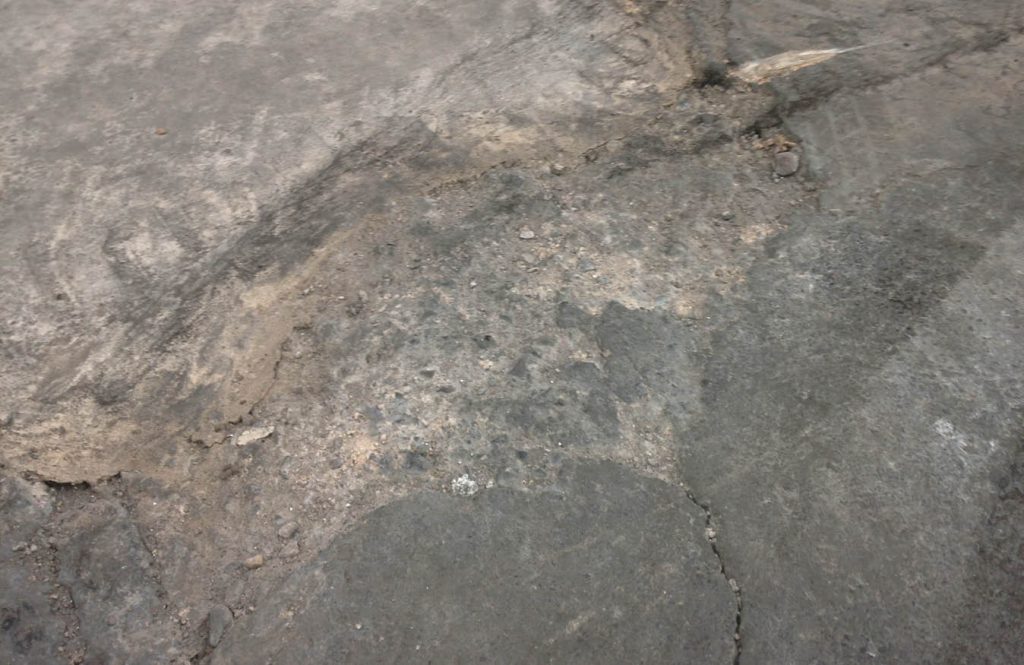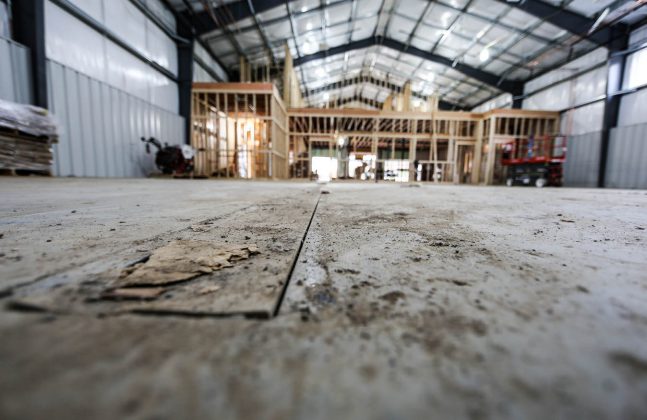Bare concrete floors might often be the cheapest option, but it can lead to a whole host of problems that could incur more costs, hassle and lost time than installing a coating in the first place.
To illustrate this point, we’ve popped together a list of just a few issues that having an uncoated concrete floor might lead to.
- Uncoated concrete is vulnerable to moisture and could be affected by issues such as freeze-thaw damage and rebar corrosion.
- Without protection, concrete is susceptible to extreme temperatures, harsh chemicals, impacts, tyre traffic, de-icing salts and liquid. In an industrial area this could mean that the floor quickly becomes chipped, contaminated, cracked and unclean.

This unprotected concrete floor has been cracked, pocked and broken by the site’s workload
- If nothing else, bare concrete isn’t the best look. A finish with pleasant colours, patterns and textures can have a significant impact on the morale, confidence and positivity of people in that environment.
- Specialist systems can provide benefits that actively enhance the facility. For example sites with sensitive electrical equipment can protect them against static electricity discharges by installing an antistatic resin floor finish.
- Slip resistance is an important flooring criteria in many environments. Bare concrete can quickly become slippery and unsafe, however anti-slip aggregates can be broadcast into a resin coating to provide tailored, targeted slip resistance.
- Critical safety and navigational signage can be incorporated into a resin coating to help identify paths or highlight hazards.
- Concrete is porous and can be penetrated by moisture and contaminants. This can lead to bacteria build up and make it very difficult to achieve a high level of hygiene. Floors coated with a seamless, impervious surface are much easier to clean and maintain.

A floor like this is virtually impossible to keep clean!
- Extensive traffic from pedestrians, wheeled equipment and forklift trucks across a concrete floor can stir up a lot of dust! This can cause allergies, lead to hygiene issues, spoil produce and affect equipment onsite.
- Unsealed concrete has little to no light reflectivity. In comparison, some coatings can increase light reflectivity by up to 300%, lowering light bills and making the space a brighter more pleasant place to be.
That’s just a few reasons that uncoated concrete might not be the best idea. Whether it’s a commercial or industrial environment, it’s always best to think carefully about what benefits and properties the floor needs to provide in order to install a finish that protects the substrate, improves hygiene, looks great and that can withstand the location’s challenges.
1 thought on “9 Problems with Bare Concrete Floors”
Comments are closed.






I have a bare concrete floor in my shop area at home and I do think it’s time to change that. As you said, a bare floor can and will be damaged over time without some kind of protection. It would probably be a good idea to get that done sooner than later to prevent any more possible damage to it.